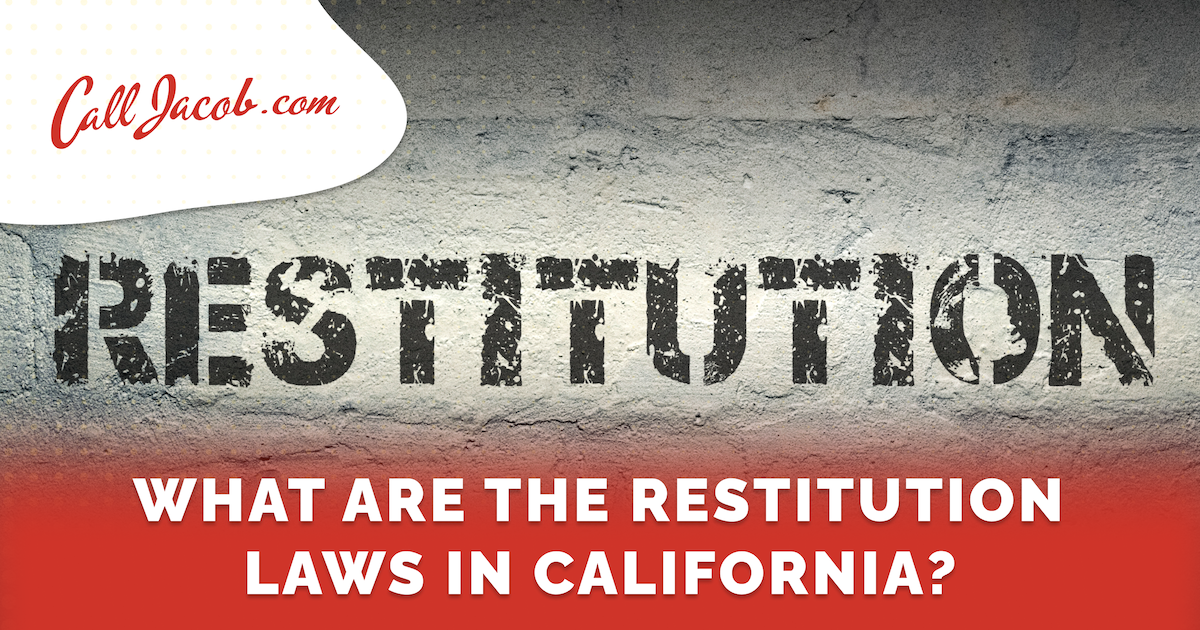If you’ve been a victim of a crime that caused financial harm, California law entitles you to compensation. The court can issue a restitution order in which the defendant is required to cover medical bills, lost wages, or the value of stolen or damaged property. Other economic losses may be included as well, such as the wages/profits lost by a parent/guardian to care for an injured minor. Restitution for psychological harm and other non-economic losses can be ordered by the court as well.
Restitution differs from a fine (which is paid to the court) in that it’s intended to compensate the victim for losses caused by an offender. A victim may be someone directly harmed by the defendant, a surviving family member, or anyone who suffered an economic loss as a result of the crime. It can be a corporation or business entity as well.
California Penal Code Section 1202.4
The California Constitution provides for a victim’s right to criminal restitution. An order must impose the full amount of a victim’s economic loss. Under Penal Code section 1202.4:
- A judge orders full restitution unless the reasons not to are “compelling and extraordinary”.
- The court will later determine an amount if the total loss isn’t known when the offender is sentenced.
- The offender can be ordered to pay for attorney’s fees and, in some cases, costs of collecting.
- Restitution orders are enforceable as civil judgments.
- A defendant can be ordered to pay even if the victim was reimbursed by their insurance company (although reimbursement to the insurer may be required depending on the policy).
- There are no statutes of limitations on restitution.
A restitution fine is considered an offender’s debt to society for their behavior. Per state law, it must be imposed regardless of the type of crime or the defendant’s sentence. If sentenced to state prison, the offender must be ordered to pay anywhere from $300 to a maximum of $10,000.
Other California Restitution Laws and Programs
- California Penal Code Section 288: A felon convicted of child molestation may be required to pay restitution for non-economic losses.
- California’s Three Strike Law: The defendant may be ordered to pay for expenses to install a residential security system or improve it.
- California Victim Compensation Board (CalVCB): Can assist with expenses if you’re a victim of a crime and not covered by insurance or other sources (compensation is only for bill payment and not property loss or pain and suffering).
- Collecting from Inmates or Parolees: While victims are often advised to wait until an inmate is on parole, the Department of Corrections and Rehabilitation (CDCR) can take funds from inmates’ trust deposits and wages. Inmates must pay all restitution before transferring their parole out of state.
When a Defendant Fails to Pay
If you’re not paid by the defendant, you can file a lawsuit in civil court. The defendant may face wage garnishment by court order. A probation violation is another possibility. If a defendant doesn’t pay, their probation officer can inform the court and a California Probation Revocation Hearing can be held, in which the judge orders them to comply with their obligations.
Call Jacob for More Information
If you’ve been injured in an accident caused by someone else, The Law Offices of Jacob Emrani can help you get compensated for your losses. We know how to pressure and negotiate with insurance companies. Our knowledge of California’s restitution laws allows us to determine whether you may be entitled to additional payments. Contact us for a free case estimate to find out how much your case is worth; for a free consultation, call (888) 952-2952.



